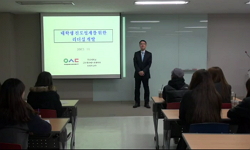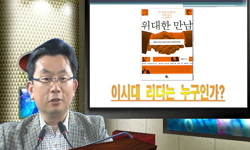The purpose of this study was to investigate to what extent gender, grade level, and thinking style can predict college students' leadership. A sample of 174 college students(male: 75, female: 99) answered inventories of leadership and thinking style....
http://chineseinput.net/에서 pinyin(병음)방식으로 중국어를 변환할 수 있습니다.
변환된 중국어를 복사하여 사용하시면 됩니다.
- 中文 을 입력하시려면 zhongwen을 입력하시고 space를누르시면됩니다.
- 北京 을 입력하시려면 beijing을 입력하시고 space를 누르시면 됩니다.

대학생의 리더십 특성에 관한 연구 - 성, 학년, 사고양식을 중심으로 = Psychological Features of College Students' Leadership: Focused on Gender, Grade, and Thinking Style
한글로보기https://www.riss.kr/link?id=A104557171
- 저자
- 발행기관
- 학술지명
- 권호사항
-
발행연도
2008
-
작성언어
Korean
- 주제어
-
등재정보
KCI등재
-
자료형태
학술저널
- 발행기관 URL
-
수록면
319-345(27쪽)
-
KCI 피인용횟수
24
- 제공처
- 소장기관
-
0
상세조회 -
0
다운로드
부가정보
다국어 초록 (Multilingual Abstract)
The purpose of this study was to investigate to what extent gender, grade level, and thinking style can predict college students' leadership. A sample of 174 college students(male: 75, female: 99) answered inventories of leadership and thinking style. The following results were obtained: First, there were significant gender differences in leadership of college students. Male students scored significantly higher than female students on the leadership scale. Second, differences in leadership were found by grade level. Leadership rose with increasing grade level. Third, the results of a stepwise multiple regression showed that college students' leadership was significantly predicted by particular thinking styles; legislative, external, hierarchic, and monarchic style. Legislative thinking style emerged as the strongest predictor of college students' leadership. Forth, the results from multiple regression procedures indicated that each subfactor of leadership was significantly related to different subfactors of thinking style. Differences in the contributions of thinking style in predicting leadership for college students were evident. These findings have implications for instruction and program development for enhancing student's leadership.
국문 초록 (Abstract)
대학생 시기는 성숙한 직업인과 시민으로 나아가기 위한 준비의 시기로, 성공적인 성인기를 영위할 수 있도록 능력을 키워야 한다. 대학생이 함양해야할 능력으로 최근 강조되고 있는 것이 ...
대학생 시기는 성숙한 직업인과 시민으로 나아가기 위한 준비의 시기로, 성공적인 성인기를 영위할 수 있도록 능력을 키워야 한다. 대학생이 함양해야할 능력으로 최근 강조되고 있는 것이 리더십이며, 효과적인 리더십 교육방법의 개발과 이를 위한 기초연구가 요구되고 있다. 이러한 필요성에 따라 본 연구는 대학생의 리더십 특성을 알아보기 위해 대학생 리더십의 성차와 학년차를 알아보고, 리더십과 사고양식의 관계를 밝히는 것을 연구의 목적으로 하였다. 연구의 대상으로는 부산시내 소재하는 2개의 4년제 대학의 남녀학생 174명이 참여하였다. 연구결과를 살펴보면, 첫째, 대학생의 리더십은 성별에 따른 차이가 있었으며, 남자대학생이 여자대학생에 비해 리더십이 높았다. 둘째, 대학생의 리더십은 학년에 따른 차이가 있었으며, 학년이 높을수록 리더십이 향상되었다. 셋째, 리더십과 사고양식은 관계가 있었으며 입법적, 외부지향적, 계급제 사고양식은 리더십과 정적인 관계가 있는 것으로 나타났고 군주제 사고양식은 리더십과 부적관계를 가지는 것으로 나타났다. 셋째, 리더십의 각 하위요인과 사고양식은 상관이 있었으며, 리더십의 각각의 하위요인과 관련되는 사고양식은 다소 다른 특징을 보였다. 본 연구는 리더십의 함양이 가장 요구되는 시기이지만 상대적으로 연구가 많이 이루어지지 않은 대학생을 대상으로 리더십의 특성을 알아보고, 경험적인 연구가 거의 이루어지지 않은 리더십과 사고양식의 관계를 밝혀 교육적 시사점을 찾고자 하였다는 점에서 그 의의가 있다.
참고문헌 (Reference)
1 손경옥, "청소년의 성격유형과 리더십생활기술의 관계" 13 : 65-83, 2006
2 최창욱, "청소년의 리더십생활기술과 관련변인에 관한 연구" 서울대학교 2001
3 김정섭, "중학생의 리더십 기술과창의적 사고 및 비판적 사고와의 관계" 한국교육심리학회 20 (20): 975-995, 2006
4 김미숙, "영재의 리더십 육성을 위한 기초연구 및 프로그램 개발(Ⅰ): 영재의 리더십의 사회적 기대와 구성요인 분석. 수탁연구 CR 2005-36" 서울: 교육개발원 2005
5 김경아, "영재아의 리더십과 정서지능에 관한 연구" 대전대학교 2004
6 윤지영, "아동의 리더십생활기술과 사회적 지지와의 관계" 한국영유아보육학회 (51) : 111-1126, 2007
7 기호익, "새로운 리더십에 관한 소고: 카리스마 리더십을 중심으로" 35 : 289-301, 1997
8 윤미선, "사고양식과 학업성취에 대한 연구- Sternberg의 정신자치제 이론을 중심으로" 고려대학교 1997
9 홍기원, "문제해결 집단에서의 성격지각과 리더십 지각간의 관계" 16 (16): 107-127, 2003
1 손경옥, "청소년의 성격유형과 리더십생활기술의 관계" 13 : 65-83, 2006
2 최창욱, "청소년의 리더십생활기술과 관련변인에 관한 연구" 서울대학교 2001
3 김정섭, "중학생의 리더십 기술과창의적 사고 및 비판적 사고와의 관계" 한국교육심리학회 20 (20): 975-995, 2006
4 김미숙, "영재의 리더십 육성을 위한 기초연구 및 프로그램 개발(Ⅰ): 영재의 리더십의 사회적 기대와 구성요인 분석. 수탁연구 CR 2005-36" 서울: 교육개발원 2005
5 김경아, "영재아의 리더십과 정서지능에 관한 연구" 대전대학교 2004
6 윤지영, "아동의 리더십생활기술과 사회적 지지와의 관계" 한국영유아보육학회 (51) : 111-1126, 2007
7 기호익, "새로운 리더십에 관한 소고: 카리스마 리더십을 중심으로" 35 : 289-301, 1997
8 윤미선, "사고양식과 학업성취에 대한 연구- Sternberg의 정신자치제 이론을 중심으로" 고려대학교 1997
9 홍기원, "문제해결 집단에서의 성격지각과 리더십 지각간의 관계" 16 (16): 107-127, 2003
10 김민정, "대학생의 셀프 리더십 개발에 영향을 미치는 학습자 변인 연구" 이화여자대학교 2007
11 이난, "대학생의 리더십 집단활동이 리더십과 자아정체감에 미치는 효과" 한국상담학회 6 (6): 387-399, 2005
12 김헌수, "대학생의 리더십 관련 변인에 관한 연구" 원광대학교 교육문제 연구소 25 : 167-181, 2006
13 Hogan, R., "What We Know About Leadership" 49 : 493-504, 1994
14 Rosner, J. B., "Ways woman lead, In the leader's companion: Insights on leadership through the ages" New York: Free Press 149-160, 1990
15 Sternberg, R. J., "Thinking styles: theory of assessment at the interface between intelligence and personality, Intelligence and Personality" New York: Cambridge University Press 169-187, 1994
16 Sternberg, R. J., "Thinking styles: Keys to understanding student performance" 71 : 366-371, 1990
17 Zhang, L. F., "Thinking styles and five-factor model of personality" 15 : 465-476, 2001
18 Burbach, M., "Teaching critical thinking in an introductory leadership course utilizing active learning strategies: confirmatory study" 38 (38): 481-493, 2004
19 Sternberg, R. J., "Successful intelligence: A new approach to leadership, Multiple intelligences and leadership" Mahwah, NJ: Lawrence Erlbaum Associates 9-28, 2002
20 Grigorenko, E. L., "Styles of Thinking, Ability and Academic Performance" 63 (63): 295-321, 1997
21 Grigorenko, E. L., "Styles of Thinking in the school" 6 : 201-209, 1995
22 Dormody, T., "Predicting youth leadership life skills. development among FFA members in Arizona, Colorado, and New ?Mexico" 35 (35): 65-71, 1994
23 Judge, T. A., "Personality and leadership: A qualitative and quantitative review" 87 : 765-780, 2002
24 Sternberg, R. J., "Patters of giftedness: A triarchic analysis" 22 : 231-235, 2000
25 Sternberg, R. J., "Mental Self-Government : A theory of intellectual styles and their development" 31 : 197-224, 1988
26 Sternberg, R. J., "MSG Thinking Styles Inventory Mannual. Unpublished manuscript"
27 장현재, "MBTI 성격유형과 변혁적/거래적 리더십 행동간의 관계" 한국산업및조직심리학회 17 (17): 467-483, 2004
28 Kirkpatrick, S., "Leadership: Do Traits Matter?" 5 (5): 48-60, 1991
29 Goleman, D., "Leadership that Gets Results" 78 (78): 78-90, 2000
30 Karnes, F. A., "Leadership and the gifted" 29 (29): 1-12, 1996
31 Zaccaro, S. J., "Leadership and social intelligence: Linking social perspectiveness and behavioral flexibility to leader effectiveness" 2 : 317-342, 1991
32 Chan, D. W., "Leadership and intelligence" 29 (29): 183-189, 2007
33 Bisland, A., "Leadership Education: Resources and Web Sties for Teachers of Gifted Students" 27 (27): 50-56, 2004
34 Kobe, L., "Emotional and social intelligence: Predicting leadership" 20 : 154-163, 2001
35 Chan, D. W., "Developing the creative leadership training program for gifted and talented students in Hong Kong" 22 (22): 94-97, 2003
36 Seevers, B. S., "Developing a scale to research and evaluate youth leadership life skills development" 36 : 28-35, 1995
37 Shackelford, S., "Behavioral styles and the influence of women in mixed-sex groups" 59 : 284-293, 1996
38 Bass, B. M., "Bass and Stodgill’s Handbook of Leadership. Theory, Research . and Managerial Applications" New York: Free Press 1990
39 Chan, D. W., "Assessing giftedness of chinese secondary students in Hong Kong : a multiple intelligences perspective" 12 (12): 215-234, 2001
40 Sternberg, R. J., "Allowing for Thinking styles" 25 (25): 36-40, 1994
41 Lord, R.G., "A Meta-analysis of the Relation between Personality Traits and Leadership Perceptions: An Application of Validity Generalization Procedures" 71 (71): 402-410, 1986
동일학술지(권/호) 다른 논문
-
아동복지시스템 퇴소 청소년들의 자립 현황과 자립 지원 정책에 대한 고찰 : 우리나라와 미국의 사례를 중심으로
- 한국청소년학회
- 원지영
- 2008
- KCI등재
-
- 한국청소년학회
- 유평수
- 2008
- KCI등재
-
- 한국청소년학회
- 심혜숙
- 2008
- KCI등재
-
중학생의 낙관성과 비관성, 어머니의 촉진적 의사소통, 진로태도성숙의 관계모형 검증
- 한국청소년학회
- 서혜경
- 2008
- KCI등재
분석정보
인용정보 인용지수 설명보기
학술지 이력
| 연월일 | 이력구분 | 이력상세 | 등재구분 |
|---|---|---|---|
| 2027 | 평가예정 | 재인증평가 신청대상 (재인증) | |
| 2021-01-01 | 평가 | 등재학술지 유지 (재인증) |  |
| 2018-01-01 | 평가 | 등재학술지 유지 (등재유지) |  |
| 2015-01-01 | 평가 | 등재학술지 유지 (등재유지) |  |
| 2011-01-01 | 평가 | 등재학술지 유지 (등재유지) |  |
| 2009-01-01 | 평가 | 등재학술지 유지 (등재유지) |  |
| 2006-01-01 | 평가 | 등재학술지 선정 (등재후보2차) |  |
| 2005-01-01 | 평가 | 등재후보 1차 PASS (등재후보1차) |  |
| 2004-01-01 | 평가 | 등재후보 1차 FAIL (등재후보1차) |  |
| 2003-01-01 | 평가 | 등재후보학술지 유지 (등재후보1차) |  |
| 2002-01-01 | 평가 | 등재후보 1차 FAIL (등재후보1차) |  |
| 1999-07-01 | 평가 | 등재후보학술지 선정 (신규평가) |  |
학술지 인용정보
| 기준연도 | WOS-KCI 통합IF(2년) | KCIF(2년) | KCIF(3년) |
|---|---|---|---|
| 2016 | 2.14 | 2.14 | 2.17 |
| KCIF(4년) | KCIF(5년) | 중심성지수(3년) | 즉시성지수 |
| 2.34 | 2.47 | 2.766 | 0.54 |





 KISS
KISS







